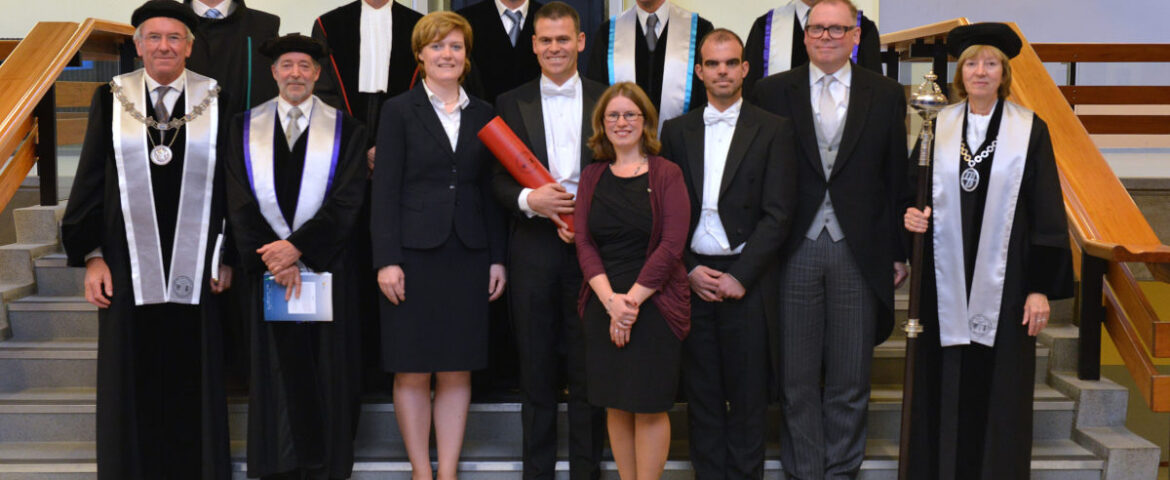PortEconomics associate member Martijn van der Horst successfully defended his PhD thesis at Delft University of Technology, entitled Coordination in Hinterland Chains: An institutional analysis of port-related transport. Martijn joined the faculty of Technology, Policy and Management of Delft University of Technology as a guest-PhD candidate to work on his thesis under supervisor of prof. John Groenewegen (emeritus professor in Economics of Infrastructure). The thesis was defended in public in the presence of a thesis committee on 3rd of November with PortEconomics members Theo Notteboom and Peter de Langen to be among the members of the committee.
“Containerisation has led to increased competition between ports and put pressure on the use of scarce hinterland infrastructure. Having good coordination between all actors involved in port-related transport, including infrastructural access to the hinterland, is required to be successful in container port competition. In hinterland chains, different coordination problems exist for different reasons. As a response, different public and private actors undertake coordination arrangements to solve coordination problems. The goal of this thesis is to advance the understanding of how actors in port-related transport chains improve this coordination”.
Martijn thesis is advancing the understanding of how actors in port-related transport chains improve this coordination. Different cases from the port of Rotterdam and its hinterland are analysed by applying different theoretical lenses from inter-organisational theories in which Institutional Economics plays a central role. They form a ‘pattern of discovery’ of different issues related to coordination in hinterland chains his thesis introduces a framework to analyse coordination in hinterland chains. The framework helps to cope with the complexity of coordination in port-related transport chains and it is a tool to explore coordination issues systematically.
The thesis can be freely downloaded via TU Delft University webpage: Coordination in Hinterland Chains: An institutional analysis of port-related transport.












